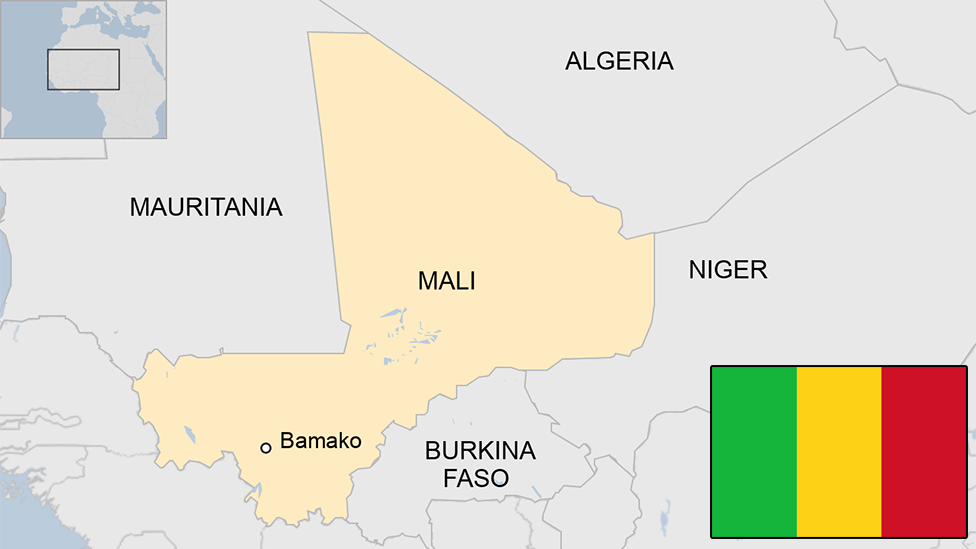Mali names coup leader Col Assimi Goïta as transitional president
- Published
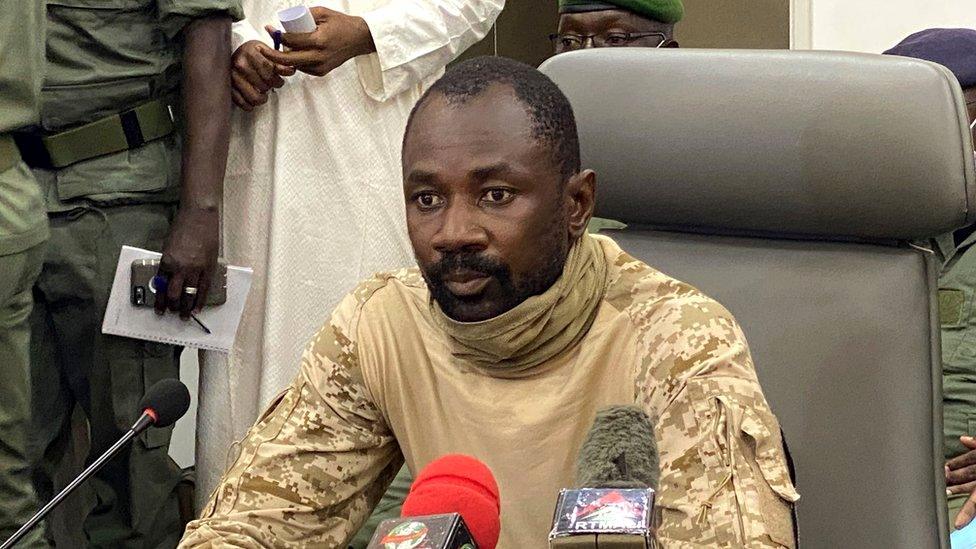
Military coup leader Colonel Goïta declared himself Mali's interim president days earlier
Mali's constitutional court has named the leader of the country's military coup, Colonel Assimi Goïta, as its transitional president.
Col Goïta had already declared himself interim president on Wednesday, two days after seizing power in Mali's second coup in nine months.
He also led the first coup last August, which saw the elected President Ibrahim Boubacar Keïta forced out of office.
The court said Friday's decision was due to the "vacancy in the presidency".
On Monday, the two men tasked with steering the country back to civilian rule, interim President Bah Ndaw and Prime Minister Moctar Ouane, were detained by soldiers.
Col Goïta said that both men had failed in their duties and were seeking to sabotage the country's transition.
They were released on Thursday after resigning.
Friday's ruling by Mali's constitutional court stated that Col Goïta should take on the responsibilities of interim president "to lead the transition process to its conclusion".
This week's seizure of power followed a cabinet reshuffle that Col Goïta said he was not consulted about, and in which he said he should have been named vice-president.
Two army officers involved in the previous coup also lost their jobs in the reshuffle.
Earlier on Friday, in his first public comments since seizing power, Col Goïta defended his actions. "We had to choose between disorder and cohesion within the defence and security forces, and we chose cohesion," he said.
He added that a new prime minister would be appointed within days, and that elections would still go ahead next year as planned, AFP news agency reported.
Why is Mali so unstable?
It is difficult to enact reforms quickly - and the vast landlocked country is poor, with large areas underdeveloped.
A coup in 2012 led to militant Islamists exploiting the chaos and seizing the north of the country.
French troops helped regain territory, but attacks have continued as the insurgents have capitalised on the persistent political instability in the region.
This has all led to public confidence waning over the army leaders' ability to tackle the Islamist insurgency that has spilled into neighbouring Burkina Faso and Niger.

You may also be interested in:
Five factors that made the coup last August against the former Mali President Ibrahim Boubacar Keïta more likely
- Published27 May 2021
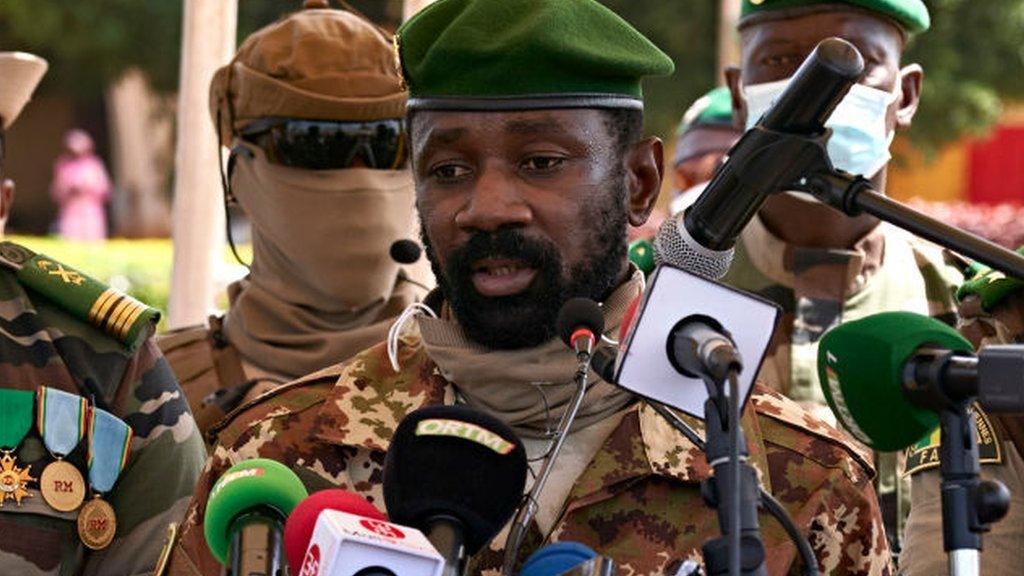
- Published12 September 2020
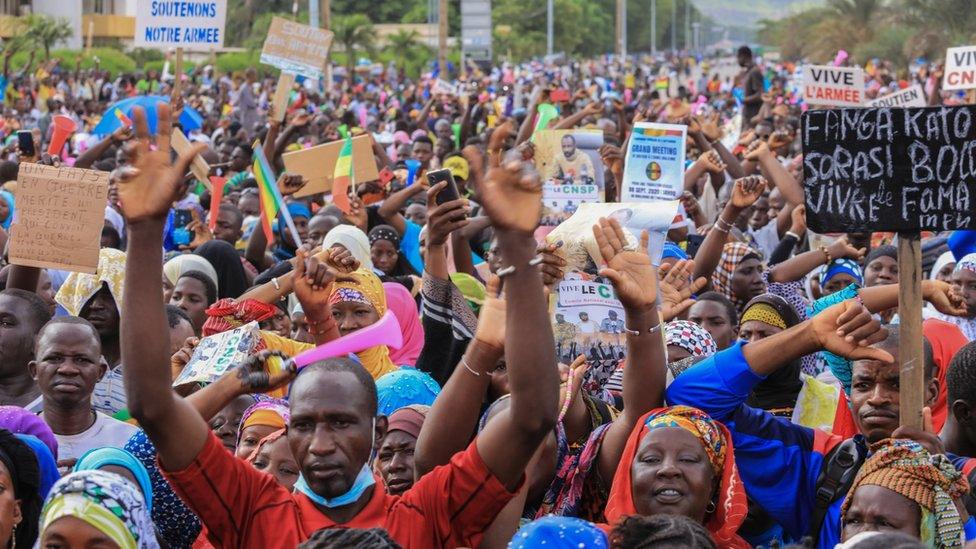
- Published21 August 2020
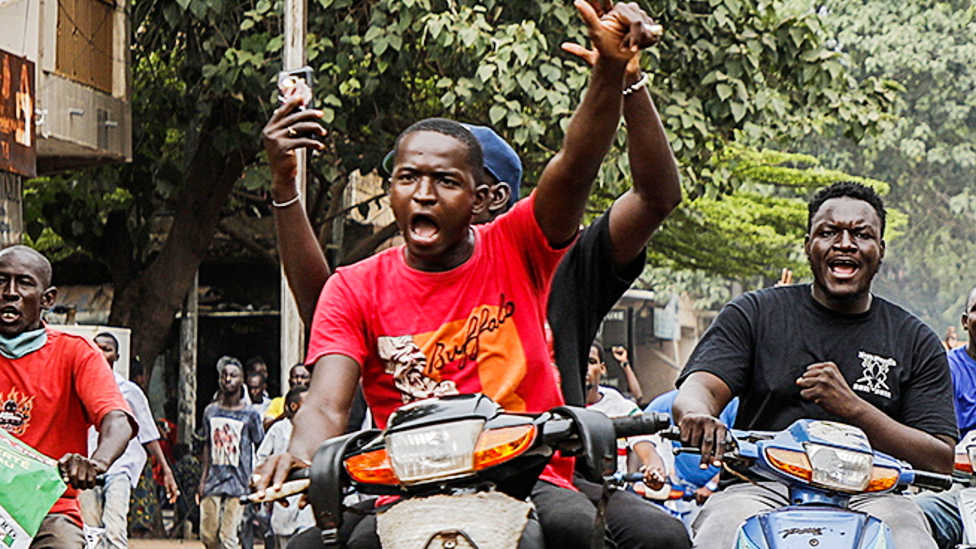
- Published28 July 2023
